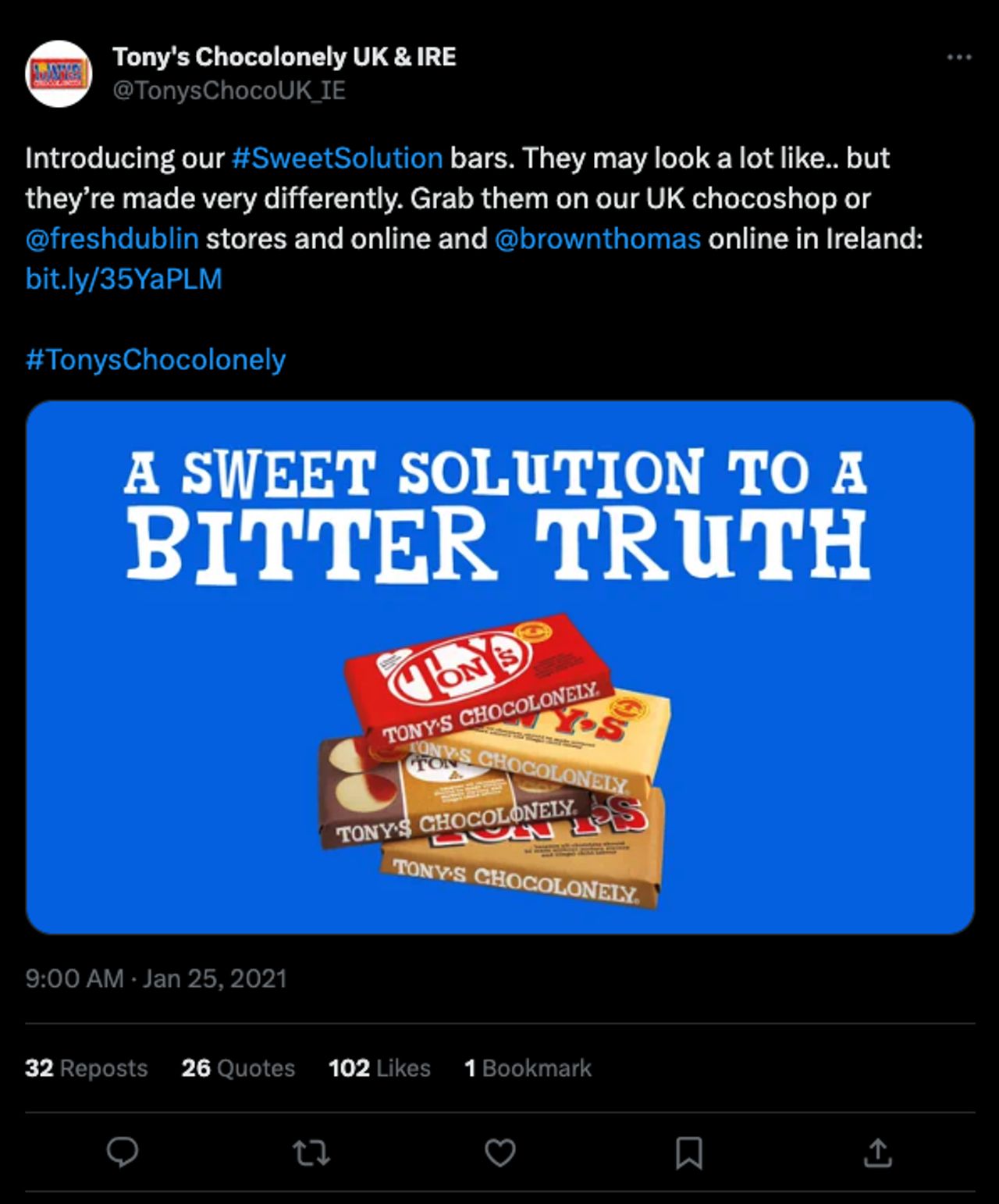The cancel culture concern; why we can’t let perfection prevent progress
We kick off our Purpose-led and Politics Focus for this month with Louise Robertson, Senior Lead of Brand Strategy at ScienceMagic, examining cancel culture's seven deadly sins and how brands' attempts at sustainability are being undermined by a quest for unattainable perfection.
The Advertising Standards Authority is starting to get stricter on environmental claims to avoid greenwashing. So, when it comes to communication around sustainability, why are so many brands still getting it wrong?
I attended Greta Thunberg’s address at Glastonbury last year and I left none the wiser.
According to the Business of Fashion, “there’s no clear picture of what sustainability looks like”. I completely agree. We have (rightly) been focussed on raising issues such as climate change, but are not clear on how we fix things. Or even how we talk about them.
I attended Greta Thunberg’s address at Glastonbury last year and I left none the wiser. I get there’s a problem, but what action do you want us to take, and can you use laymen’s terms please?

Above: What Greta Thunberg says may be true, but what action can we take?
With lack of clarity comes mistakes, and with mistakes come ridicule and, increasingly, cancellation. And although ridicule is needed in some cases, the fear of getting cancelled could be hindering progress.
Before I go any further, I should caveat that a lot of environmental, social and governance-focussed campaigns [ESG] out there deserve to be cancelled, but I would argue that cancel culture is hindering brands’ ESG efforts.
The reality is it’s impossible for any brand or business to be 100% sustainable.
Here are seven ways I believe that cancel culture is stopping many brands from moving the dial on sustainability:
1. It emphasises perfection, not progress
Sustainability is a journey, never a destination. However, cancel culture tends to demand immediate perfection. This discourages organisations from sharing progress and can lead to reluctance to take any action.
Consumers seem to think there are two camps - sustainable or unsustainable - and the reality is it’s impossible for any brand or business to be 100% sustainable, as Patagonia stated famously in 2020. Ganni is another great example of this realism, describing itself as an unsustainable brand committed to making better choices every day, and releasing an annual report containing transparent data... which brings me to my next point.

Above: Fear is hindering transparency; "Every time I write something about sustainability my lawyer is on my back."
2. It reduces transparency
The fear of being cancelled can lead to companies withholding information about challenges or improvement out of concern that critics will unpick imperfections.
A friend is Sustainability Director at a global beauty conglomerate and said; “Every time I write something about sustainability my lawyer is on my back. There’s a fear of sharing data because of what you could be called out for. This fear is hindering transparency, which is ultimately what’s going to drive us forward.”
There’s a fear of sharing data because of what you could be called out for. This fear is hindering transparency.
For many businesses, the more data shared, the more we can learn from each other. We need to be honest, transparent and back it up with concrete plans.
3. It hinders innovation
The fear of being criticised prevents experimentation and innovation.
We encourage our clients to innovate in their ESG practices, either via their product design or by doing more good with initiatives and charity partnerships. However, we have witnessed many brands go down the route of not communicating anything at all until they ‘get it right’, which just can’t go on. We are in a state on emergency as a planet, and innovation is what will drive us forward.

Above: Tony’s Chocolonely redesigned some of the most famous chocolate brand bars to playfully shame them but playing nice could lead to better results.
4. It stops open dialogue
Meaningful conversations about ESG require a safe space where individuals and organisations can admit past mistakes and discuss ways to improve. Cancel culture's focus on blame and shame stifles this.
An example of this is when Tony’s Chocolonely redesigned some of the most famous chocolate brand bars (such as Nestle’s KitKat) in a bid to playfully shame them. It backfired when Sainsbury’s delisted Tony’s, apparently due to pressure from the big brands (who all denied this). The stunt certainly got people talking, but did it make a difference?
Coldplay have chosen to be transparent, which can encourage others to do the same.
We need to play nice and leave the finger pointing to Greenpeace. We’re all in this together.
5. It diverts attention from bigger Issues
Excessive focus on minor missteps can divert attention from more critical, broader issues.
Coldplay were recently the first band to release a sustainability report. With the rise of free streaming, record labels now must make money by touring – leading to excessive travel. Coldplay’s transparency can encourage others to follow suit. However, some commentators on social ridiculed the results for not being good enough. This is missing the point. Coldplay have chosen to be transparent, which can encourage others to do the same, thereby setting more positive standards for the music industry.

Above: Coldplay were the first band to release a sustainability report, receiving criticism for their results not being good enough, but the band is setting a positive standard.
6. It stops talent involvement
People of influence are key to raising issues, but what if they’re scared to talk? As an agency, we have experienced influencers avoiding engaging in ESG efforts due to the fear that their past actions (even things like eating meat), will overshadow their positive steps. This reluctance to participate hampers the spread of sustainable practices and awareness.
7. It drains resources and impacts investment
Dealing with backlash can drain resources and divert attention from meaningful initiatives such as reaching net zero. Organisations might focus on reputation management rather than efforts to make tangible improvements. The key route to a better planet is reducing carbon and, although we cannot just rely on offsetting, the perceptions around offsetting could be hindering progress.
Cancel culture could impact decarbonisation and the journey to net zero.
Dom Clarke, Chief Sustainability Officer at InHabit, told me that cancel culture could impact decarbonisation and the journey to net zero. “Quite often, when you mention offsetting, a few eyebrows get raised [with] uncertainty about the quality and effectiveness of credits undoubtedly putting people off. However, offsetting done well as part of a considered neutralisation strategy, although expensive, can greatly impact biodiversity and communities for the better. I believe that there can be improvements around the science and reporting of offsetting impacts – we’re in a state of emergency, we can’t afford to get it wrong at this stage, as that’s what will reduce business leaders’ faith in the programmes.”

Above: Progress requires a collective effort.
No brand is going to solve the climate crisis on its own. Progress requires collective efforts involving government, organisations and consumers. As well as this, language needs to be consistent. The harder it is to talk about sustainability, the less brands will want to invest in it.
In our quest for a more sustainable world, embracing imperfection is crucial.
Finally, and most importantly, global standards could create a unified framework for transparent and responsible advertising. Efforts are underway, with organisations such as the International Chamber of Commerce. However, achieving this remains challenging due to cultural, legal and economic differences.
In our quest for a more sustainable world, embracing imperfection is crucial. Let’s harness the power of accountability and progress to create a better future, together.
)




 + membership
+ membership









